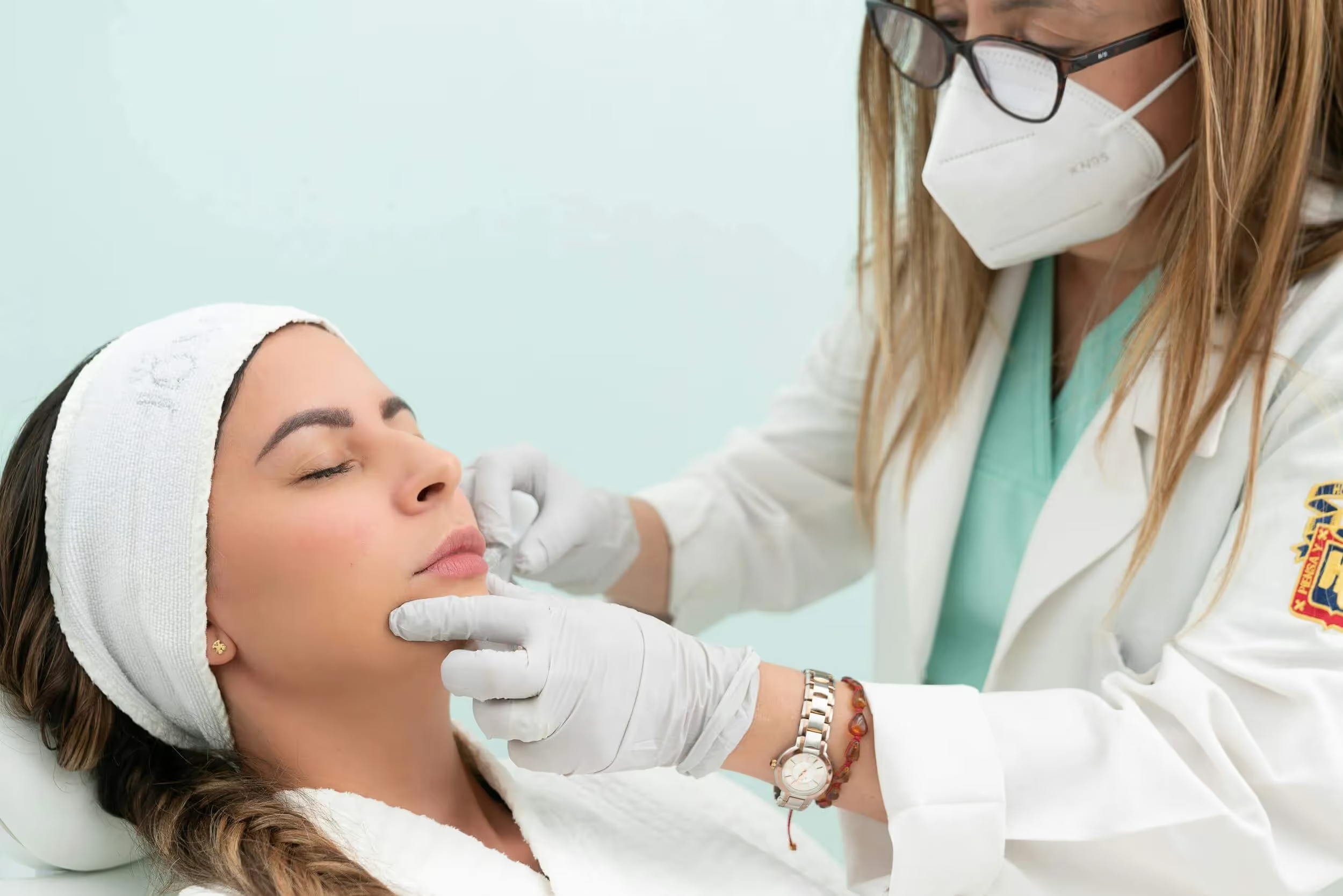If you need to learn more about North Carolina med spa laws, you've come to the right place.
There are approximately 27,000 medical spas in the United States. North Carolina is in 5th position on this list with 684 med spas.
Clearly, the North Carolina med spa industry is growing, and this might be the best time to jump in and make the most of this opportunity. But compliance and regulations are confusing — we get that. Understanding the state's specific regulations and legal complexities isn’t easy. But we’re going to help point you in the right direction.
Owning a med spa in North Carolina
In North Carolina, due to the Corporate Practice of Medicine Doctrine (CPOM), non-physicians cannot own a medical practice, including a med spa. Only licensed physicians can fully own a medical practice, including med spas. The CPOM serves to ensure that medical services are delivered by qualified professionals with a priority on patient safety.
However, non-physicians can still be involved in running a med spa. Typically, a licensed physician owns the practice, while a Management Services Organization (MSO) manages the non-medical aspects like administration and business operations. This structure allows a non-physician to help the physician focus on patient care while providing some back-office assistance such as the space, certain equipment and non-medical staffing.
Most business owners consider forming a business entity like a Limited Liability Company (LLC). This structure can protect personal finances from potential business liabilities if structured appropriately.
Consulting with a business attorney can help you choose the most suitable business structure for your med spa.
Our detailed guide can help you understand the legalities, and we at Moxie can connect you with qualified legal and business professionals to guide you through the process.
Legal requirements for med spas in North Carolina
1. Physician involvement
A crucial aspect of operating a med spa in North Carolina revolves around physician involvement. Legally, North Carolina needs the medical entity to employ or contract with a licensed physician. This person serves as the medical director and is responsible for overseeing medical procedures. They must be actively practicing in North Carolina.
While licensure is essential, it's equally important to ensure the medical director has the necessary education from a professional institution, training, and experience in cosmetic medical procedures to effectively manage the medical aspects of a med spa.
2. Initial physical assessment
Before any cosmetic procedure can be performed, a thorough physical assessment is mandatory and should be done by a licensed physician, physician assistant (PA), or advanced practice registered nurse (APRN). Yes, this one’s a non-negotiable.
Why is the initial assessment so important?
- Uncovering existing health issues: Conditions such as heart disease, diabetes, or autoimmune disorders can significantly impact the patient’s ability to heal and respond to treatments. Identifying these issues beforehand allows for better planning and risk management.
- Determining candidacy: Not every patient is a suitable candidate for every cosmetic procedure. The assessment helps determine if the patient’s skin type, medical history, and overall health align with the requirements of the desired procedure.
- Setting realistic expectations: It's essential for the medical professional to communicate what the procedure can realistically achieve and any potential limitations. This conversation helps manage patient expectations and enhances overall satisfaction with the results.
What does the assessment involve?
- A thorough review of the patient’s medical history is the first step. This includes past surgeries, chronic illnesses, allergies, and any current medications.
- Next comes a physical exam that focuses on the specific area of the body that will be treated. This may include assessing skin quality, elasticity, and any existing conditions like scars or pigmentation issues.
- In some cases, diagnostic tests might be necessary. These could include blood tests to check for underlying conditions, skin patch tests to rule out allergies, or imaging studies for more invasive procedures.
- Then there is a two-way conversation where patients can ask questions and express concerns. The medical professional will explain the procedure in detail, including the steps involved, recovery time, potential side effects, and expected outcomes.
- After the assessment and consultation, obtaining informed consent is the final step. This involves providing the patient with detailed information about the procedure, including risks and benefits, and ensuring they understand and agree to proceed.
3. Authorized personnel
This is a frequently asked question — who can perform procedures?
In North Carolina, only licensed physicians, physician assistants (PAs), advanced practice registered nurses (APRNs), and registered nurses (RNs) are authorized to perform cosmetic medical procedures. Laser Technicians and Aestheticians are permitted to perform a limited selection of cosmetic procedures.
It’s important to understand the specific scope of practice for each licensed professional. For example, while physicians have the broadest scope, the ability of PAs, APRNs, and RNs to perform specific procedures might vary.
Note: Procedures here include Botox, Dysport, laser hair removal, skin resurfacing, chemical peels, sclerotherapy, microdermabrasion, microneedling, dermal fillers, and other non-surgical cosmetic treatments.
Scope of practice under North Carolina med spa laws
Understanding the scope of practice for each medical professional helps keep a med spa compliant.
The overseeing physician should possess relevant knowledge and experience in the specific procedures offered. After all, you need someone who can adequately guide and support the medical team.
Supervisors, whether physicians, PAs, or APRNs, must be competent in the procedures they oversee. This means having a deep understanding of the treatment, potential risks, and appropriate patient selection criteria.
Typical documents to help set up a scope of practice guidelines start with:
- Written protocols: Develop and maintain written protocols that outline the scope of practice for each professional role within the med spa. These protocols should be based on state regulations and industry standards.
- Training and orientation: Provide comprehensive training and orientation programs for new staff members to familiarize them with the scope of practice guidelines. Regularly update these programs to reflect any changes in regulations or best practices.
- Regular audits: Conduct regular audits to ensure compliance with scope of practice guidelines. Review patient records, treatment logs, and staff performance to identify any deviations and address them promptly.
- Clear communication: Foster an environment of open communication where staff members feel comfortable discussing any uncertainties or concerns about their scope of practice. This helps prevent mistakes and promotes a culture of safety and compliance.
Provider information
Clearly display the names and specialties of all licensed professionals working within the med spa in a prominent location accessible to clients. This could be a board or digital display near the reception area.
A med spa's website should feature a dedicated page or section highlighting team members. Include their credentials, areas of expertise, and professional affiliations. This enhances online visibility and allows potential clients to research providers before their visit.
Before undergoing any procedure, give patients a written notice detailing the provider's name, qualifications, and any relevant information about their experience. This helps clients make informed decisions about their care.
Compliance and documentation
All procedures performed within the med spa must align with North Carolina’s public health laws, including sanitation standards, infection control protocols, and emergency preparedness.
Providers must only perform procedures within their licensed scope of practice. This means no overstepping boundaries or performing treatments outside their area of expertise.
Maintain detailed records of all procedures, patient interactions, and training. This includes patient charts, treatment logs, and staff training documentation. Regular audits and updates to documentation practices ensure ongoing compliance and high standards of care.
Moxie tip: Consider implementing a quality assurance program to monitor and improve patient care and safety.
Training and competency
Supervising physicians must be actively involved in assessing and documenting the skills of those they supervise.
This could involve:
- Direct supervision and mentorship: This includes one-on-one mentorship, where experienced physicians guide less experienced staff through procedures, share best practices, and provide real-time feedback.
- Hands-on training sessions: These sessions can include mock procedures, simulations, and peer reviews to ensure that all team members are proficient in their roles.
- Competency assessments: Including direct observation during procedures, reviewing patient outcomes, and conducting formal evaluations. Competency assessments should cover technical skills, adherence to safety protocols, and patient interaction.
- Documentation of skills and training: This includes documenting initial training, ongoing education, certifications, and competency assessments. These records help track progress, identify areas for improvement, and ensure compliance with regulatory requirements.
Want to open a med spa in North Carolina? Moxie can help.
Moxie empowers aspiring med spa owners to understand the complexities of opening and running a thriving practice. We'll help turn a vision into reality, all while helping navigate some of the complexities of North Carolina med spa laws.
Moxie can help launch med spa in many ways:
- Find a medical director without hassle: Moxie can help with the right and qualified North Carolina based med spa medical director for a medspa through our extensive network of professionals.
- Simplify compliance: Moxie provides templated consent forms and policies crafted by industry-leading lawyers and MDs to help.
- Marketing: Moxie can help with website creation (under your brand) to attract customers.
- Hands-on, expert coaching: Our dedicated coaches meet with you regularly to support growth, provide hands-on help, and guide you through the process of growing the med spa.
- Software that’s built for med spas: From online appointment scheduling to charting to text message marketing and memberships — we’ve got you covered. With Moxie, it’s easier than ever to run the business and wow clients.
Book a free strategy session today.
Disclaimer:
The information provided in this article is for general informational purposes only and does not constitute legal advice. It is recommended to consult with your respective state boards, a licensed attorney, or your malpractice carrier to ensure that you are practicing in accordance with all state regulatory requirements. The regulations regarding aesthetic treatments and medical spas can vary and may change over time, including from the time of this publication.
When you're ready to take the next step in launching or growing your aesthetic practice, here are 3 ways Moxie can help:




